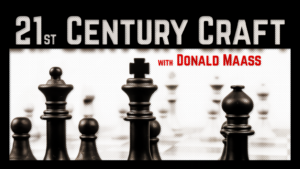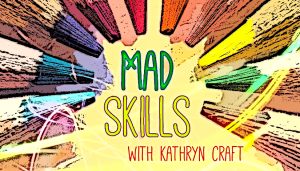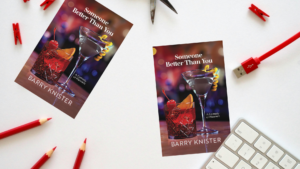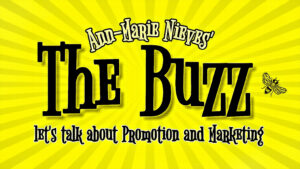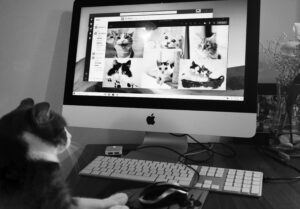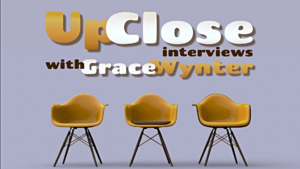self-publishing
Today’s “ad post” is also a valuable blog post written by our own Barry Knister, detailing his experience with two editors while preparing his novel, Someone Better Than You, for publication. Enjoy!
Deciding to work with an editor is a major decision. It costs money, and calls on the writer to do something analogous to what all good parents must do: love their children enough to let them go (at least until they come home and move into the basement).
That’s what the writer does when she turns over her baby to an editor. This person will get to know the fledging novel or memoir, but usually with no knowledge of how it came to be. That means, when the baby comes home, the writer must will herself into a kind of amnesia, in order to absorb and respond to the stranger’s reactions.
That’s why I urge writers to read a report, but to then put it aside for a week or more before going back to it. Otherwise, they risk acting or reacting on impulse.
Recently, I worked with two editors on my forthcoming novel, Someone Better Than You. By coincidence, both people are past editors for Penguin. In every respect, working with these editors led to improvements in my novel. I acted on most but not all of their suggestions, and what follows is my attempt to summarize the process.
RONIT WAGMAN
I first hired Ronit in 2020 to read and report on the full manuscript of what was then titled Ashley and the Jell-O Hour. Although she liked the story (“the world of the novel and the characters that dwelled in it felt deeply authentic to me”), she had several major criticisms.
AGENCY
In the version Ronit read, my main character Brady “Buzz” Ritz is a retired newspaper editor. His life is upended when he publishes a book of his anonymously published satirical columns. He blunders mightily by publishing the book’s second edition under his own name.
In this first version, Brady’s book comes about through the actions of others. The editor of Grumble (the little magazine that first published his column) talks Brady into developing a book of his work. Ritz’s best friend from his newspaper days gets an agent friend to find a publisher. Most importantly, the best friend shames Ritz into using his own name for the second edition.
As Ronit explained, I had made my main character the passive pawn of others. Someone else pushes him to develop the book, and someone else arranges for it to be published. Most importantly, someone else is responsible for Ritz publishing the second edition under his own name.
Ronit’s guidance led me to make Ritz less a passive actor, and more the responsible agent for his story. He still gets the idea for the book from his editor, but as Ronit pointed out, no agent would take on such a manuscript from an “anonymous” writer—because no publisher would be interested in such a book.
So, I replaced a commercial publisher with a university press whose editor has the freedom to publish something by an unknown writer. I also got rid of the idea of a second edition. Once I made these changes, I was free to make Brady responsible for the […]
Read MoreWriters often ask me why, with all of Writer Beware’s warnings about bad actors in the publishing world, we don’t also provide recommendations or endorsements of the good guys. “You’ve got this gigantic list of scammers on your blog; wouldn’t it also be helpful to recommend reputable agents and publishers?”
There are several reasons why we don’t do this.
Writer Beware has a very specific purpose: to document and expose schemes, scams, and pitfalls that target writers, and to educate authors on how to recognize and avoid them. As far as we know, we’re the only organization with this exclusive mission. In other words, we aren’t a general-purpose resource: we are quite narrowly focused. We are also a small, all-volunteer team, with limited time and resources.
Also, one size does not fit all. Agents, publishers, etc. have widely varying areas of interest and expertise, and the best agent or publisher or freelance editor or cover designer for one writer might be the worst choice for another. Lists of “good guys” won’t necessarily be very useful, depending on what you write and what your publishing goals are (not to mention, they are incredibly time-consuming and research-intensive to compile and maintain; did I mention that Writer Beware is a small team?). It really is better for writers to do their own research and vetting, armed against scams and bad practice with the tools and knowledge Writer Beware provides.
Finally, recommending or endorsing any particular publishers, agents, etc. risks raising questions of conflict of interest. How do you know, one of Writer Beware’s many haters might inquire, that the agents on that “good guy” list didn’t pay to be there? Of course this would not be true—Writer Beware doesn’t even accept charitable donations—but we want to avoid all possibility of such questions arising. (This is why, when scammers want to discredit us, they have to make stuff up—such as that I own my own publishing company and am badmouthing competitors).
So I can’t suggest which agents to query, which publishers to approach, which self-publishing platforms to consider. What I can do is try to cut through some of the fog and noise of the internet by recommending reliable resources to help with your publication journey. The internet is a goldmine of information for authors, but it is also a swamp of fake facts, bad advice, and scams—and it can be very difficult to figure out which websites are reliable and which experts are actually experts.
Following are a few of my favorite online resources. Some you’ll no doubt already be familiar with, but hopefully you’ll also discover something new. (And of course Writer Unboxed would be on the list, if I weren’t already here!) Most of the resources are free, but some require subscription or a membership fee. Writer Beware receives no consideration or compensation for mentioning them.
GENERAL RESOURCES
The Writer Beware Website. http://www.writerbeware.com/ The Writer Beware blog is WB’s most high-profile online presence, but many people don’t realize that we’re also a very large website. While the blog covers scams and publishing industry issues in real time, the website is a resource for general advice and warnings, designed to empower writers to recognize and protect themselves from schemes and […]
Read MoreRecently, a writer contacted me to ask about the legitimacy of an email they’d just received, from someone claiming to be a literary agent interested in representing them.
All by itself, the solicitation itself was a warning sign: reputable agents, who are drowning in submissions, have no need to drum up business and don’t typically cold-call writers to hawk their services. But I’d also gotten several complaints about this purported agent, so I knew for sure this was a “beware”.
I informed the writer–who had contacted me several times before to ask about what also turned out to be scams, and had themself been scammed by a predatory vanity publisher–and apologized for yet again being the bearer of bad news. “I guess everyone’s a bad guy,” the writer responded sadly, “and it’s pointless even to try.”
I understand this mindset. Especially for self-published authors, who are the primary target these days for the extremely numerous and highly aggressive solicitation scams I wrote about in my very first post for Writer Unboxed, it can certainly seem like publishing a book is equivalent to diving, unprotected, into a shark tank.
The reality, however, is not quite that awful. Yes, there are a lot of bad actors in and around publishing…not just scammers and predators, but people and companies who are well-intentioned but don’t have the skills to do the job (schmagents, unqualified freelance editors, amateur publishers). But that doesn’t mean there aren’t also plenty of reputable, competent people. They definitely exist. The constantly expanding universe of scams and pitfalls hasn’t changed that.
The writer’s response got me thinking, though. My standard advice for how to cope with the prevalence of scams is to educate yourself: learn as much as possible about publishing and self-publishing–and do it before you start trying to snag an agent, or querying publishers, or assessing self-publishing platforms and service providers. The more you know about how things should work, the easier it is to recognize bad practice when you encounter it. (The Writer Beware website is a good place to start.)
But it’s not just about being prepared with adequate knowledge. Mindset is also important: your default assumptions about, and responses to, the people and situations you encounter along your publication journey. Such expectations can help you, or they can hinder you–like my writer friend, whose bad experiences caused them to conclude, falsely, that no one can be trusted.
Following are some of the common damaging mindsets I see in my work with Writer Beware, along with suggestions for, hopefully, shifting them.
MINDSETS TO ABANDON, AND SOME TO ADOPT
Mindset 1: Everyone is a scammer. The writer mentioned above is far from the only one with a paranoia problem. I regularly hear from authors who are so traumatized by a scam experience, or even just the prospect of stumbling into one, that they don’t know which way to turn.
Believe me, I get it. Especially if you’ve been ripped off before, or are being hounded by a parade of solicitation fraudsters, or had a terrible experience with a publisher that wasn’t intentionally dishonest but screwed you anyway and behaved badly when things began to go wrong, it can seem like it’s not safe to trust anyone. But […]
Read MoreAs some of you may already know, in addition to being a highly sought-after shirtless model for romance novel covers, I am also a longtime professional musician, having earned my first money for playing drums at the ripe old age of 14. In fact, music was my fulltime profession until my late 30s. And I didn’t start seriously writing fiction (inasmuch as anything I write could be considered “serious”) until I turned 40. (So you might say that as a writer, I was a 40-year-old virgin. But I digress…)
Coming into a new-to-me art form with a lengthy background in another, I’ve been repeatedly struck by how many parallels I’ve encountered between the two creative paths. It has also been interesting to note the very different experience of learning one art form as a child, and learning another as an adult (inasmuch as a person like me could ever be considered an “adult”).
But I’ll leave the exploration of the whole young-versus-old-artist rabbit hole for some other day. Today, I want to explore five similarities I’ve found in pursuing two art forms – writing and music – at the professional level. I’ll start with the one I think is most important:
1. It’s a business.
Thus far I’ve been calling them art forms, but when you start actively seeking a paying audience for your work – whether written or musical – you quickly become aware that you are dealing with a business, which brings with it numerous rules, obstacles and rites of passage, many of which are not clearly stated or even openly acknowledged. Yeah, it’s fun like that. Trust me: You’re gonna want to wear a helmet.
In each case, because it’s a business, many decisions that will affect your success are A) based on money, and B) out of your hands.
As a musician, this could come down to who is willing to hire you, or to pay to see you perform, or to publish your music (an area that used to be where the money was in songwriting), or to finance your recording and/or tour, or to buy your recordings. Bottom line: It’s about who will spend their money on this thing you chose to do. As the artist, all you can do is make whatever product or service you’re offering as appealing – and as competitive in terms of financial value – as possible.
Writers are in a similar position. Whether you’re pursuing the traditional publishing route, or self-publishing, or trying to get a piece of your dramatic work produced either on stage or screen, somebody else has to decide that what you’re doing (or promising to do) is worth their money.
In both cases, as an artist, you are free to express yourself in any way you see fit. But as an artist who wants to be paid for that art, it quickly becomes obvious that some pathways lead a bit more directly to potential revenue generation than others. Hence my next observation:
2. Genre matters.
For example, a thrilling 70,000-word whodunit with a strong, confident protagonist stands a better chance of selling some copies than a 600-page second-person diatribe exploring the modernist paradigm of discourse that forces the reader to choose between subcapitalist situationism and the dialectic paradigm of consensus. (Incidentally, I have no […]
Read MoreWhen I first met today’s featured author, I had just started writing (very bad) fiction and was looking for other writers who were less bad at it than I was. I created a Meetup group, set up a meeting date, and waited. On that first day, only one person showed up: Terra Weiss. We’ve been friends ever since. In the almost ten years that have followed, Terra’s paid close attention to the publishing industry and adapted to its changes, all while honing her craft. Now she’s a successful indie author of six full-length novels that have received hundreds of glowing reviews across Amazon and other platforms. (Her novel Wingmom has over 500 reviews to date!) Whether your goal is traditional publishing, indie publishing, or something in between, if you’re interested in writing as a career, Terra’s interview provides a wealth of knowledge, and I’m beyond delighted to introduce her to the WU community today.
GW: Thanks for agreeing to share your writing and publishing experiences with the Writer Unboxed community. Can you tell us what genre you write in and when and why you started writing?
TW: Thank you so much for inviting me to be a guest here at Writer Unboxed. I’ve been reading and learning from your articles for years, and I’m honored to be able to share some of my experiences and hopefully give back. I write romcoms and romantic mysteries, which I started tinkering around with in 2013 when my daughter was a year and a half old. I needed somewhere to channel the creativity that was bottling up inside me because I had no time to pursue creative outlets like I did before my baby was born. Writing during her naps and playtime with Nana not only made me a better mom but also helped me realize that I have a passion for storytelling. I never stopped writing fiction, and now, my daughter is eleven and a half and becoming quite the author herself, despite facing dyslexia.
GW: You have self-published six full-length books to date, with a seventh currently up for preorder. Why did you choose the self-publishing route?
TW: I chose self-publishing for several reasons, the most important one being that I wanted creative control of my books, covers, and marketing. I have an entrepreneurial spirit, and after being in the trenches for two years now, I see firsthand that successful indie authors are hardcore businesspeople. On top of constantly bettering their craft and delivering new books, they’re also hustling on everything else running a business entails, from the endless marketing and social media to the administrative work and the finances. It’s long hours where you sink or swim, and in my case, doggie paddle for an eternally long stretch while learning to become the jack-of-all-trades. Because I thrive in that kind of environment, being an indie author is extremely rewarding to me, but it’s certainly not for everyone.
GW: What are the three most important lessons you’ve learned about publishing in today’s landscape?
TW: It’s a jungle out there.
For real. The old adages that used to be told about self-publishing no longer apply. A popular one was, “You don’t have to follow the rules […]
Read MoreIt’s been five years since I posted the last essay here in which I ask why I put myself though the topsy-turvy pursuit of writing fiction. As I said then, I find the process worthy of reexamining because the answers inevitably change. It’s never been truer than it is now, coming up on the one-year anniversary of the publication of my debut. Which means that this time I need to ask myself not just why I’m still writing, but why I should bother to continue my publication journey.
Since it’s occupied most of my attention over the last couple of years, I’ll start with publishing.
My Pub Position
Besides propped at the end of the bar nursing a pint, what is my pub position? For anyone who might be new around here, I should probably start with a brief overview. I write epic fantasy. I worked for over a decade on a trilogy, of which the first edition was my debut. After pursuing a traditional deal for several years, I decided to self-publish. I’d initially planned on having all three books published within a year. That obviously hasn’t happened. There are a variety of reasons for the delay in book two’s arrival, which I’ll leave for another post. The second and third books should appear in fairly short succession, but I’ve learned to not make predictions. Well, not public ones, anyway.
For an overview of the marketplace, mine was one of over four million titles to release in 2022, a year during which book sales were down about 4.5%. The growth of self-publishing has led to an unprecedented number of new books, and the latest tools and resources provide those of us who choose the path with an unprecedented means to offer a quality product. I’m very pleased with the physical quality of my offering. It is far from alone in a sea of gorgeous, enticing fantasy releases.
Beyond having a beautiful book in a sea of beautiful books, how am I doing? I’m going to be totally honest here and say that I don’t know—not exactly. I’ve learned that keeping track of sales data is harmful to my mental health. Doing so undeniably impedes my ability to make progress with anything writing-related. I find anything involving comparison to be particularly adverse to the creative process. Meanwhile, not keeping track of sales data is hardly an astute business practice. There are indicators that can’t be ignored, of course. For example, I have been stunned by the number of you—WU contributors and regulars—who bought, read, reviewed, reached out, and/or recommended my debut. Your support has been phenomenal, and my gratitude is immense and undiminished.
Stepping outside of WU, I have found the SFF self-pub community—avid readers, reviewers, and fellow authors alike—to be warm and inclusive. I’ve met many wonderful folks, and have received no small amount of enthusiastic support. In terms of harnessing support, I can see that the more one invests of themselves, the better they do. For me, online interaction poses a challenge. Too much is definitely not a healthy proposition. Too little, even over short periods, results in swiftly fading from the community’s awareness.
I’ve been seeking my own version of balance. Unfortunately, what feels like balance to […]
Read More
